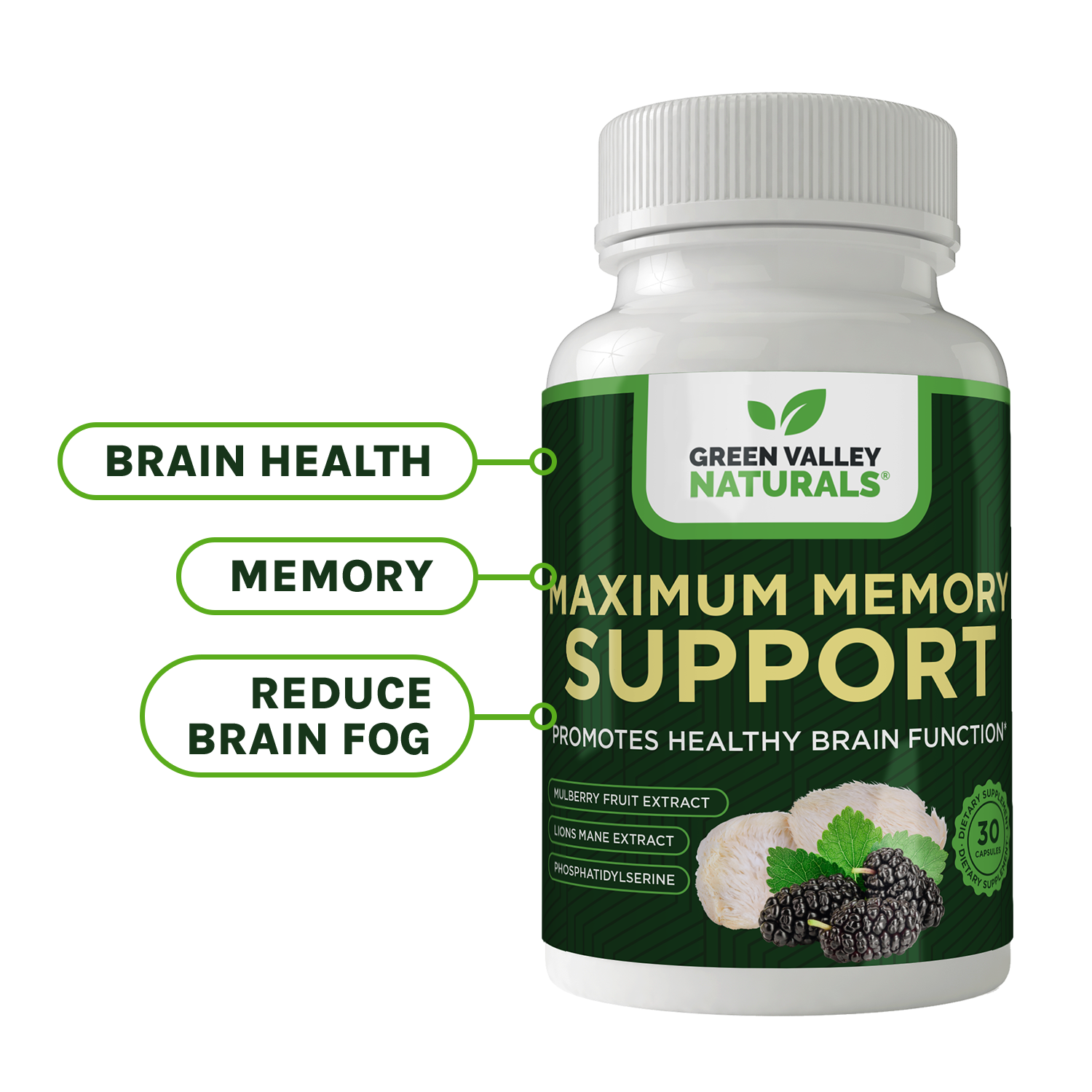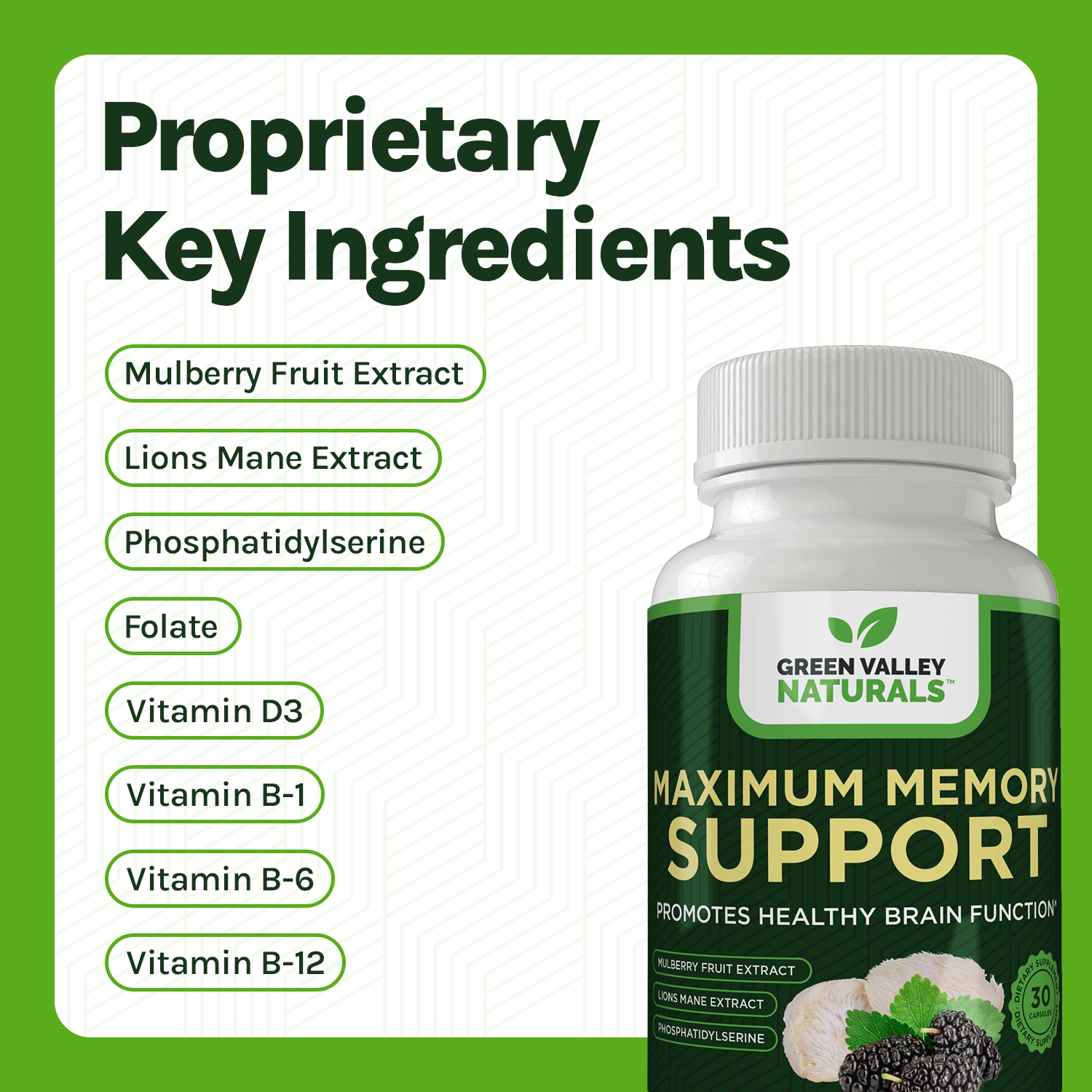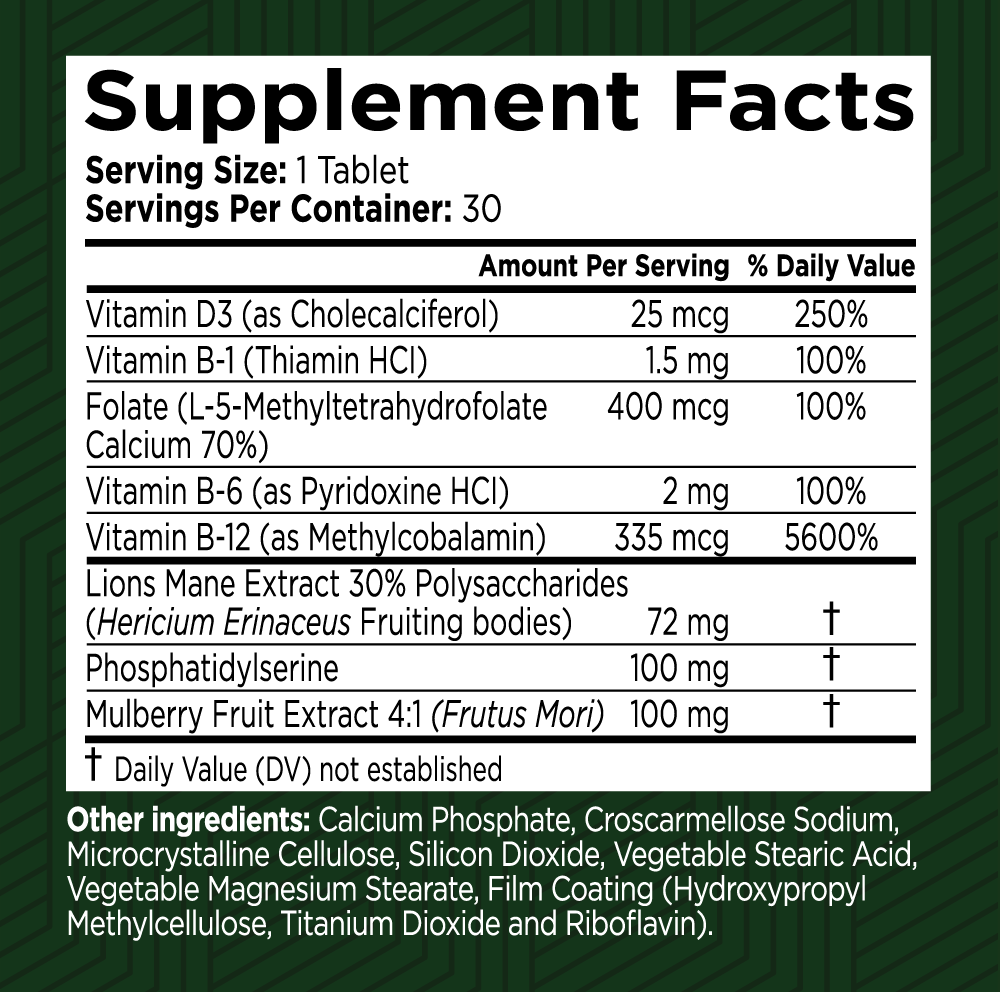Maximum Memory Support
Enhances Memory, Focus, and Overall Cognitive Function...
Key Ingredients

Phosphatidylserine
PS is a phospholipid that plays a crucial role in cell membrane integrity and function. It’s vital for efficient communication between brain cells and is known to improve memory, concentration, and overall cognitive function.
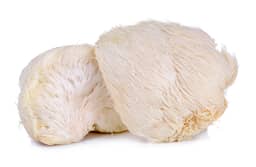
Lions Mane Extract 30% Polysaccharides (Hericium Erinaceus Fruiting bodies)
This medicinal mushroom is renowned for its cognitive benefits. It contains hericenones and erinacines, compounds that stimulate the production of nerve growth factor, aiding in the regeneration and function of nerve cells. Lion’s Mane is particularly known for enhancing memory and focus.
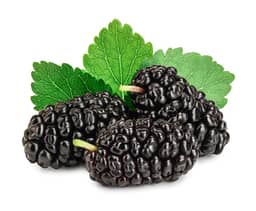
Mulberry Fruit Extract 4:1 (Frutus Mori)
Mulberry is included for its properties that enhance neuroplasticity, the brain’s ability to form new neural connections. Improved neuroplasticity is associated with better cognitive functions and memory.

Vitamin D3 (as cholecalciferol)
Vitamin D3 (as cholecalciferol) is a vital nutrient for maintaining bone health, supporting immune function, and promoting overall wellness. Its ability to enhance calcium absorption, modulate the immune system, and reduce inflammation makes it an essential ingredient for those seeking to improve their respiratory health and overall quality of life.

Vitamin B-1 (Thiamin HCI)
Vitamin B1 (as Thiamine Mononitrate) is a crucial supplement for supporting energy production, nerve function, and overall cellular health. By converting food into energy and promoting the proper functioning of the heart, muscles, and nervous system, Vitamin B1 is an essential addition to your daily wellness routine, ensuring optimal health and vitality.

Folate (L-5-Methyletrahydrofolate Calcium 70%)
Folate (L-5-Methyltetrahydrofolate Calcium 70%) is a superior supplement that supports DNA synthesis, cell division, and overall health. By providing a bioavailable form of folate, it ensures optimal absorption and efficacy, promoting cardiovascular health, cognitive function, and prenatal development. Folate is an essential addition to your daily wellness routine, supporting optimal health and vitality.

Vitamin B-6 (as Pyridoxine HCI)
Vitamin B6 (Pyridoxine HCl) is a vital supplement that supports numerous bodily functions, including amino acid metabolism, neurotransmitter synthesis, and hemoglobin production. By enhancing cognitive function, mood, and cardiovascular health, Vitamin B6 is an essential addition to your daily wellness routine, promoting optimal health and vitality.

Vitamin B-12 (as Methylcobalamin)
Vitamin B12 (as Methylcobalamin) is a highly bioavailable supplement that supports nerve health, red blood cell formation, and DNA synthesis. By providing the active form of B12, it ensures optimal absorption and efficacy, promoting energy production, cognitive function, and overall well-being. Vitamin B12 is an essential addition to your daily wellness routine, supporting optimal health and vitality.
Frequently Asked Questions
Your health is our top priority
Here at Green Valley, we only work with US-based manufacturing facilities that are cGMP (Good Manufacturing Practices) compliant and FDA inspected.
Our products are triple tested by our manufacturers to ensure potency and purity and are stored in our temperature and humidity-controlled warehouse right here in the Shenandoah Valley, Virginia. And we ship directly to your doorstep – we don’t share warehouse space and we don’t hand off your business to a third party to fulfill your order.
Best of all, all Green Valley products come with our 90-day Satisfaction Guarantee. If you are unhappy with the product for any reason, simply call or email our customer support team and return the unused portion of the product within 90 days of your order. We’ll refund every penny of your purchase (less shipping), no questions asked!

Maximum Memory Support Customer Reviews
I seem to remember more although occasionally I have trouble with immediate recall
I seem to remember more although occasionally I have trouble with immediate recall. I have started to recall old memories regarding family and work. Not that I try to recall. It's just there so I can recall the event if I have the time.
